A movie that verifies whether it is really possible to 'confess the truth with medicine'

By
In fiction works, there are scenes where captured spies and operatives use confessions to spit out information, but in reality, do humans who receive confessions say the truth fluently? The effect of the medicine is being verified by Michael Mosley at the BBC.
BBC News --Can a drug make you tell the truth?
http://www.bbc.co.uk/news/magazine-24371140
You can see how the confession agent is actually administered in the following movie.
Michael Mosley takes the'truth drug' thiopental --Pain, Pus and Poison --BBC Four --YouTube
The ingredients of confessions used in movies and dramas are not revealed in the work, but they are thought to be mainly thiopental sodium, an anesthetic. This time, the BBC conducted a verification with an anesthesiologist to see if thiopental sodium really had a confession effect.

Michael Moseley undergoing an experiment.

Thiopental is a
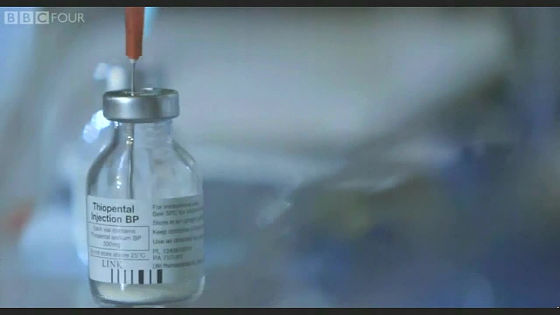
A low dose of sodium thiopental is administered from the back of the hand.
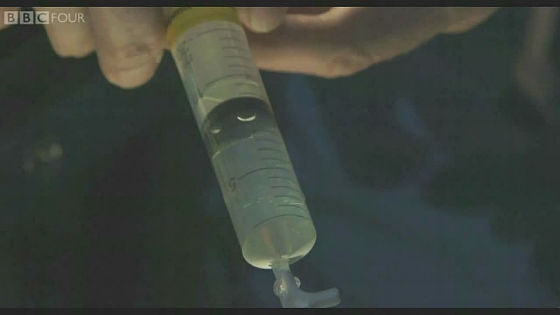
Mr. Moseley started laughing as if the active ingredient had been absorbed. I describe that mood as 'I feel like I'm drinking champagne.'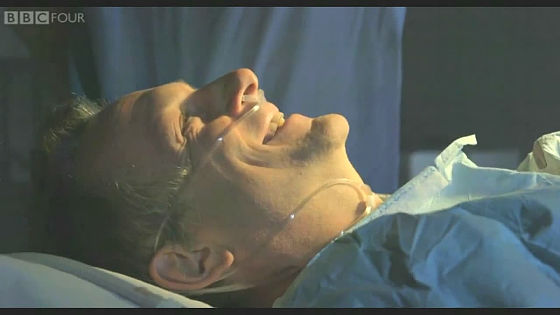
When the anesthesiologist asks, 'What is your job doing?', Moseley begins the myth that he had prepared, 'I am a world-famous cardiac surgeon.'
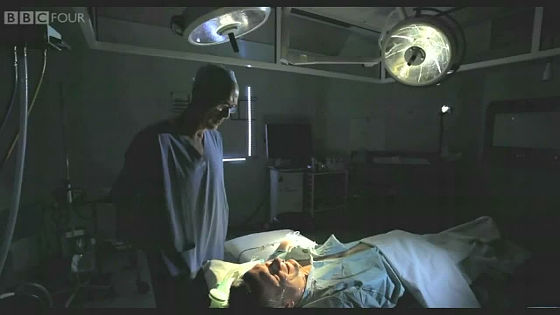
'What was the last surgery you did?' Asked the anesthesiologist, 'I had a great success with the heart bypass surgery ... I'm the best! Hahaha!' I can do it.
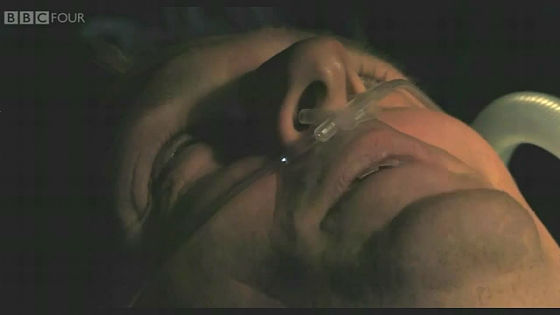
Heart rate is on the rise.

To add more confessions within a non-hazardous range.
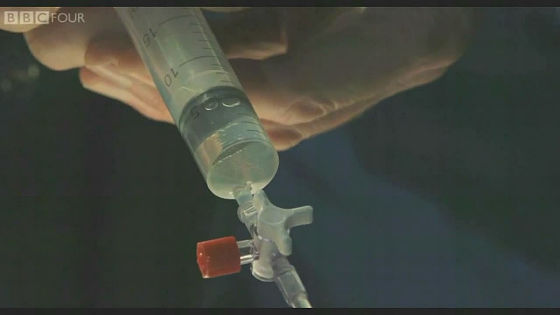
When the thiopental was fully in the body, the anesthesiologist asked for his name and occupation again ...
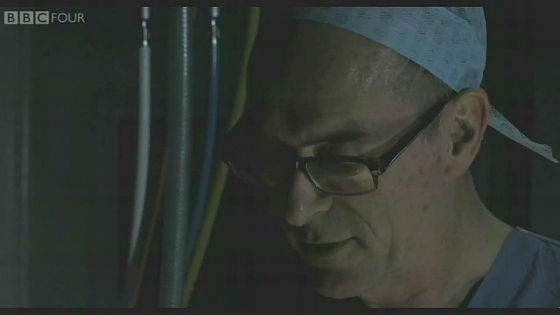
'My name is Michael Moseley, a TV producer,' he began to tell the truth, not the myth that he had prepared.
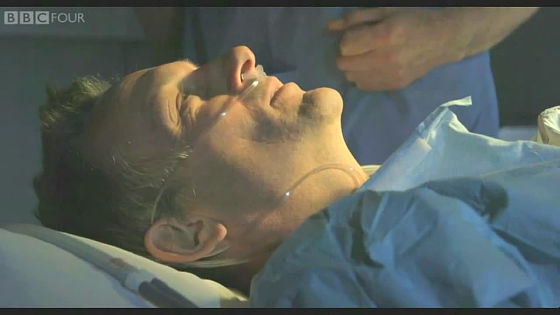
When asked, 'Then you don't have a background as a'cardiac surgeon'?' Moseley says, 'Hahaha, no. It's my job to make TV.'

And I fell asleep as if I couldn't open my eyes.
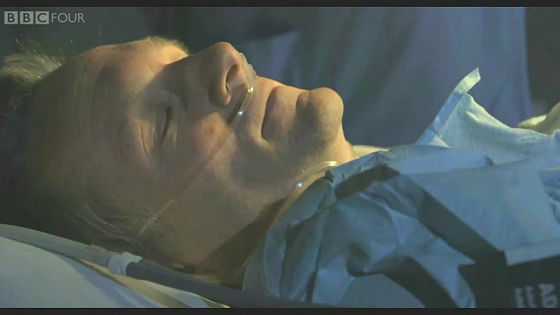
According to Moseley, after the second drug worked, his last memory was twisted and he couldn't think of the option of 'having to lie.' We conclude that this condition is very suggestive and that if the questioner is such a professional, it will be possible to draw the truth well. However, even if you can hear the story, you may say something that you do not want to hear, or you may fall asleep immediately, so it seems difficult to use it as a reliable confession agent with directivity.
Related Posts:
in Video, Posted by darkhorse_log






